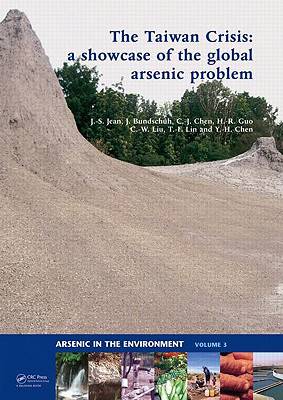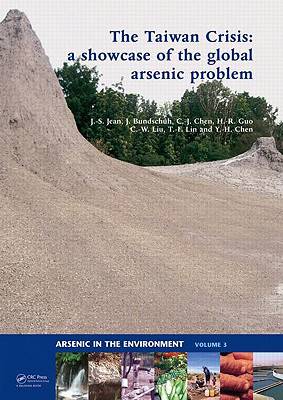
- Afhalen na 1 uur in een winkel met voorraad
- Gratis thuislevering in België vanaf € 30
- Ruim aanbod met 7 miljoen producten
- Afhalen na 1 uur in een winkel met voorraad
- Gratis thuislevering in België vanaf € 30
- Ruim aanbod met 7 miljoen producten
The Taiwan Crisis: A Showcase of the Global Arsenic Problem
Jiin-Shuh Jean, Jochen Bundschuh, Chien-Jen Chen, How-Ran Guo, Chen-Wuing Liu, Tsair-Fuh Lin, Yen-Hua ChenOmschrijving
In the 1950s, the residents of the southwestern coastal areas of Taiwan suffered greatly from Blackfoot disease (BFD) due to the consumption of arsenic-contaminated groundwater. Groundwater with high levels of arsenic in southwestern and northeastern Taiwan received much attention. After arsenic-safe tap water was utilized for drinking instead of groundwater in the 1970s, BFD cases decreased greatly. After 1990, no new BFD cases were reported, and as a consequence, BFD problems disregarded. However, arsenic is still present in the groundwater.
This book will improve the knowledge and understanding of the occurrence and genesis of arsenic-rich groundwaters in Taiwan. It deals with constraints on the mobility of arsenic in groundwater, its uptake from soil and water by plants, arsenic-propagation through the food chain, human health impacts, and arsenic-removal technologies. Taiwan case experiences are described in this book and can be applied worldwide.
This book is a state-of-the-art overview of research on arsenic in Taiwan and is designed to:
- create interest in regions within Taiwan that are affected by the presence of arseniferous aquifers;
- draw attention from the international scientific community;
- increase awareness among researchers, administrators, policy makers, and company executives;
- improve the international cooperation on arsenic problems worldwide.
Specificaties
Betrokkenen
- Auteur(s):
- Uitgeverij:
Inhoud
- Aantal bladzijden:
- 234
- Taal:
- Engels
- Reeks:
- Reeksnummer:
- nr. 3
Eigenschappen
- Productcode (EAN):
- 9780415585101
- Verschijningsdatum:
- 28/05/2010
- Uitvoering:
- Hardcover
- Formaat:
- Genaaid
- Afmetingen:
- 175 mm x 249 mm
- Gewicht:
- 639 g

Alleen bij Standaard Boekhandel
Beoordelingen
We publiceren alleen reviews die voldoen aan de voorwaarden voor reviews. Bekijk onze voorwaarden voor reviews.












